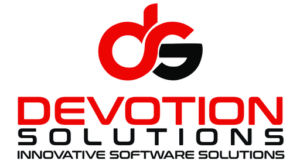AirSim is an open-source simulator for drones, cars, and other vehicles, developed by Microsoft. It provides a realistic virtual environment for testing autonomous systems, and it has become a popular tool for researchers and developers in the field of robotics and artificial intelligence. In this blog post, we will explore how AirSim can be used in a data science and AI project, and we will discuss some of the key features and benefits of this powerful simulation platform.
First, let’s take a closer look at AirSim itself. AirSim provides a realistic 3D environment that allows users to simulate the behavior of drones, cars, and other vehicles in a variety of conditions. It uses advanced physics engines to simulate the movements and interactions of objects in the virtual world, and it provides a range of sensors and cameras that can be used to collect data on the simulated vehicles and their surroundings. AirSim also supports a range of programming languages, including Python, C++, and C#, which makes it easy for developers to build and test autonomous systems using their preferred programming language.
So how can AirSim be used in a data science and AI project? One example is the development of machine learning algorithms for autonomous vehicles. By using AirSim to simulate a variety of driving scenarios, researchers and developers can collect large amounts of training data that can be used to train machine learning models for object detection, path planning, and other key tasks. This data can then be used to improve the performance of autonomous vehicles in the real world, making them safer and more reliable.
Another example is the use of AirSim in the development of computer vision algorithms. By using the cameras and sensors provided by AirSim, researchers and developers can collect large amounts of data on the visual environment of the simulated vehicles. This data can then be used to train computer vision models for object recognition, scene segmentation, and other key tasks. These models can then be used to improve the performance of autonomous systems in a variety of applications, from self-driving cars to industrial robotics.
In addition to these applications, AirSim can also be used for a wide range of other data science and AI projects. For example, it can be used to test and optimize control algorithms for autonomous systems, to simulate the behavior of robots in complex environments, or to develop and test algorithms for multi-agent systems. The flexibility and versatility of AirSim make it a valuable tool for researchers and developers in a wide range of fields.
At Devotion Solutions, we have used AirSim in several of our data science and AI projects, particularly in the development of autonomous systems for the transportation industry. One of our recent projects involved the use of AirSim to collect large amounts of training data for object detection and path planning algorithms in autonomous vehicles. By simulating a variety of driving scenarios, we were able to train machine learning models that were more robust and accurate than those trained on real-world data alone. We also used AirSim to test and optimize control algorithms for autonomous vehicles, which helped to improve their performance and safety. Our experience with AirSim has been very positive, and we believe that it is a valuable tool for any data science or AI project involving autonomous systems.
In conclusion, AirSim is a powerful simulation platform that provides a realistic virtual environment for testing autonomous systems. It can be used in a wide range of data science and AI projects, from the development of machine learning algorithms for autonomous vehicles to the development of computer vision algorithms for robotics applications. By using AirSim, researchers and developers can collect large amounts of data, test and optimize algorithms, and improve the performance of autonomous systems in a variety of applications. If you’re interested in exploring the possibilities of AirSim for your own data science or AI project, we encourage you to give it a try!



Leave A Comment
You must be logged in to post a comment.